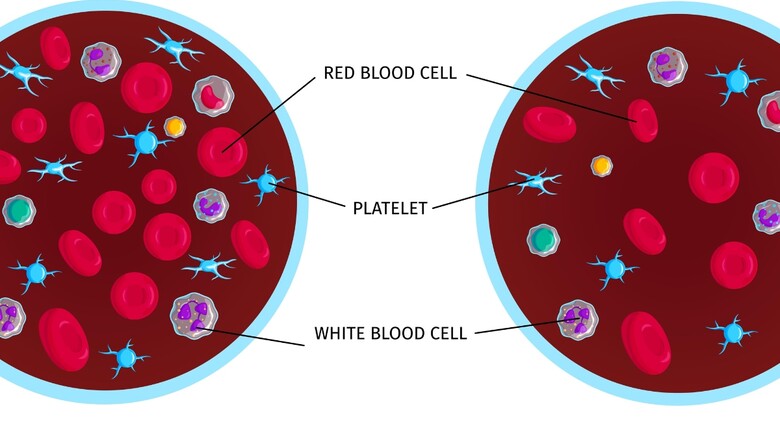
views
Sickle cell anemia is a genetic blood disorder characterized by misshapen red blood cells that can cause blockages, pain, and organ damage. It primarily affects individuals of African, Mediterranean, and Middle Eastern descent.
Dr. Anoop P, Senior Consultant, Haematology, Paediatric Haemato-Oncology and Transplant Physician, Aster CMI Hospital, Bangalore, says, “Sickle cell anaemia is an autosomal genetic blood disorder that affects the shape of the red blood cells (RBC). This disorder turns RBCs from their normal round flexible disc shape into stiff and sticky sickled cells. Sickled RBCs slow down the blood flow and prevent oxygen delivery to the tissues.”
What is the condition about?
“Sickle cell anaemia is a genetic blood disorder characterized by the presence of abnormal hemoglobin, a protein found in red blood cells that carries oxygen throughout the body. It is caused by a mutation in the gene responsible for producing hemoglobin,” says, Dr. A Vijaya Vardhan, Consultant Physician, Apollo Clinic, Basavanagudi, Bengaluru.
Normally, red blood cells are disc-shaped and flexible, allowing them to move easily through blood vessels. However, in individuals with sickle cell anemia, the abnormal hemoglobin causes red blood cells to become rigid and take on a crescent or sickle shape. These abnormal cells can block blood flow in small blood vessels, leading to a variety of symptoms and complications.
What are the symptoms and ways to diagnose it?
Some common symptoms of sickle cell anemia include fatigue, shortness of breath, delayed growth and development in children, episodes of severe pain known as “crises,” frequent infections, and jaundice (yellowing of the skin and eyes). The severity and frequency of symptoms can vary widely among individuals.
“Newborns and toddlers may not show any obvious symptoms, except in severe cases where tender swelling of finger joints are seen. Anaemia, fatigue, jaundice, frequent infections, swelling of hands and feet, and bone pain are some of the common symptoms to watch out for. Among adolescents, this could also cause delay in puberty. To ascertain the disease, your health practitioner might advise you to undergo a blood test called hemoglobin electrophoresis,” adds Dr Anoop P.
Diagnosis:
“Sickle cell anemia is an inherited condition, meaning it is passed down from parents to their children. It occurs when both parents carry a specific gene mutation. If a person inherits the gene mutation from only one parent, they will have sickle cell trait, which typically causes milder symptoms or no symptoms at all,” adds Dr Vardhan.
The diagnosis of sickle cell anemia typically involves a combination of medical history assessment, physical examination, and laboratory tests. Hemoglobin electrophoresis, Complete blood count and blood smear. If the blood tests indicate the presence of abnormal hemoglobin, further genetic testing may be performed to confirm the diagnosis. This involves analysing the specific mutation in the HBB gene that causes sickle cell anemia.
What are treatments available for those that have the condition?
There is currently no cure for sickle cell anemia, but treatment aims to manage symptoms, prevent complications, and improve quality of life. This may involve pain management during crises, blood transfusions to increase the number of normal red blood cells, medications to reduce complications, and other supportive measures. “Stem cell transplantation, also known as a bone marrow transplant, is the only known cure for sickle cell anemia, but it is a complex procedure with potential risks and is typically reserved for severe cases,” states Dr Vardhan.
Sickle cell anaemia has to be managed properly to prevent painful crisis episodes and organ damage. Blood transfusion, medications and bone marrow transplantation are effective treatment modalities.



















Comments
0 comment